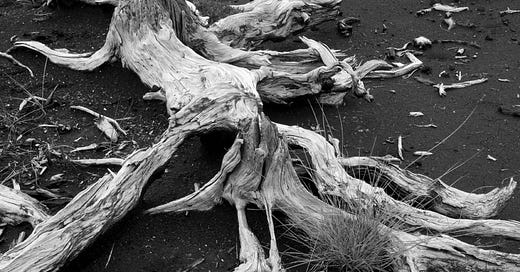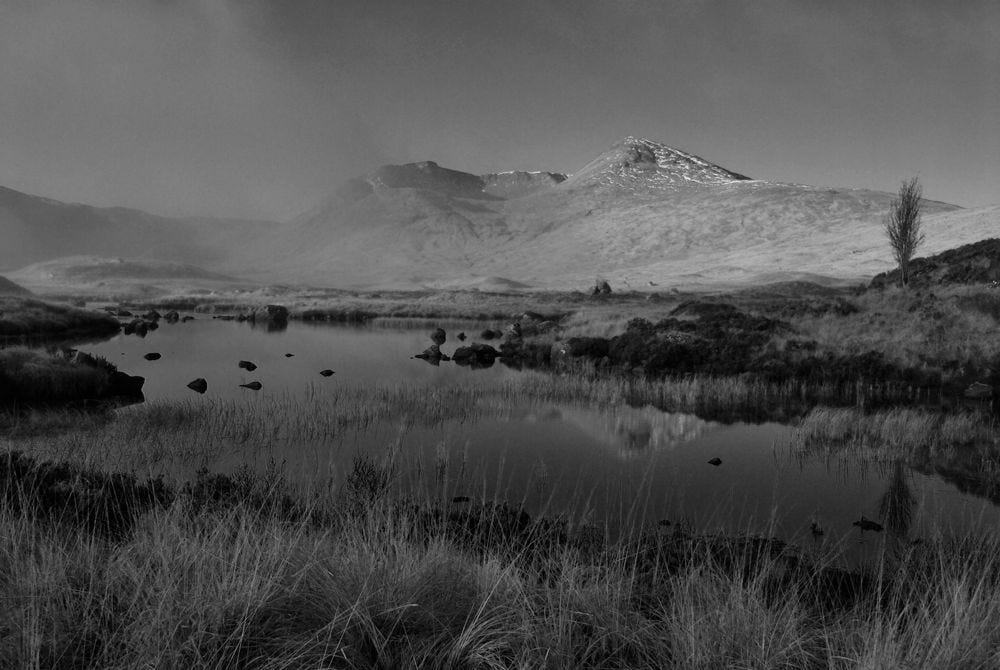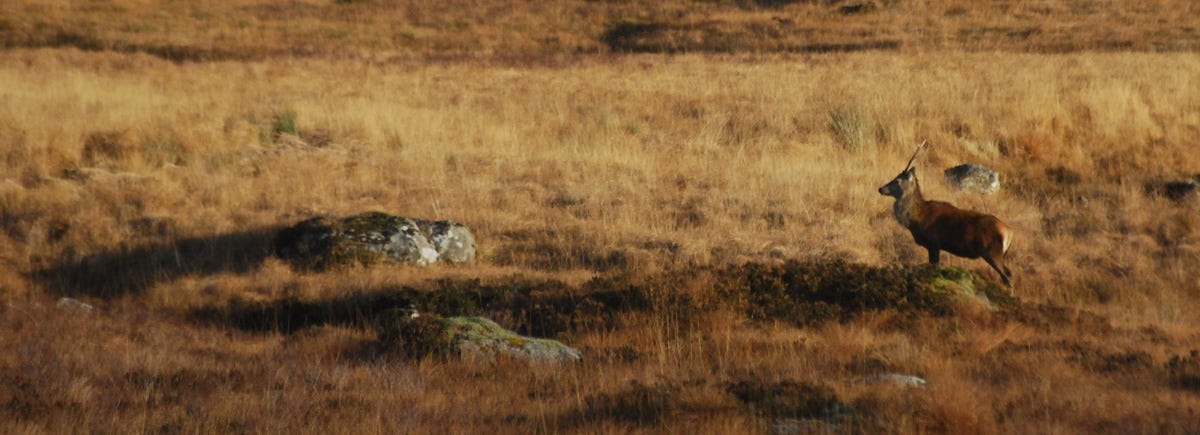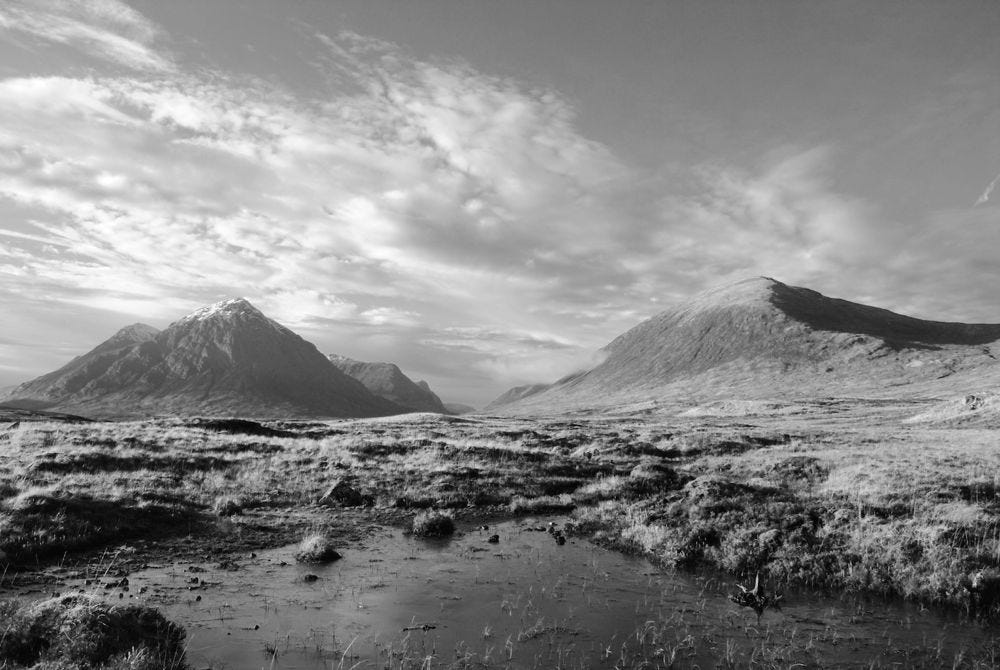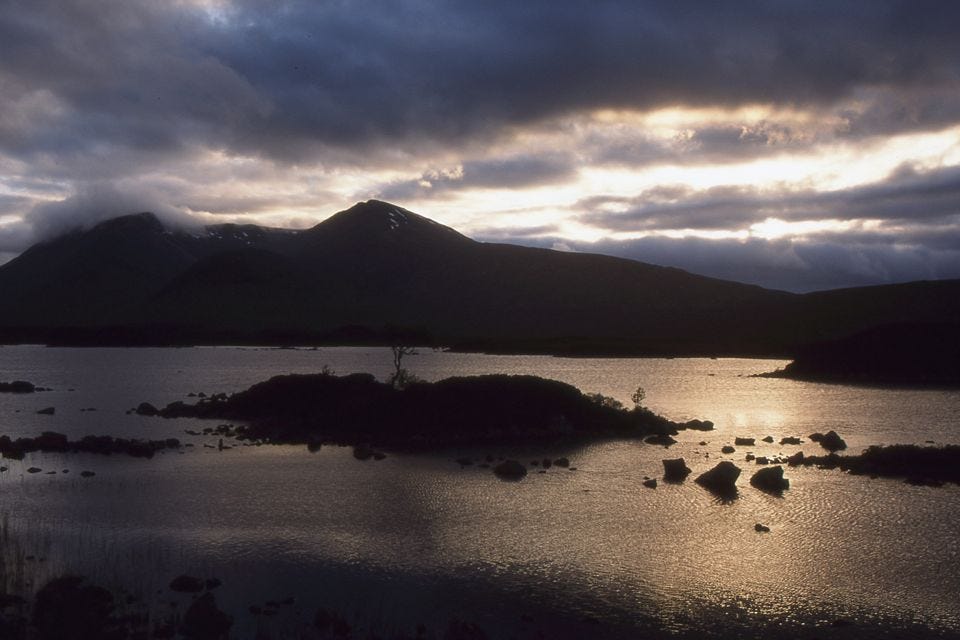T S Eliot on Rannoch Moor
Was TS Eliot a poet of the Scottish Highlands? Apparently, he was. ‘Rannoch by Glencoe’ has been considered as his only great short lyric. Even if he did cross the moor in a car. [750 words, 4 mins]
My piece on my ‘all-time favourite paper map’ (Harvey’s Lake District West) came out on UKhillwalking.com yesterday [here] .
The first fellwalkers were poets. For Coleridge and the Wordsworths, heading up Helvellyn was just another aspect of English Romanticism, along with the experimental drugs and the radical politics. In 1818 Keats walked up the West Highland Way and climbed Ben Nevis as part of his poetic apprenticeship. Two years earlier, Shelley wrote one of his greatest poems about Mont Blanc, though he didn’t actually climb the mountain.
But since then, not terribly much. Some twentieth-century mountaineers wrote verse: Wilfrid Noyce, Geoffrey Winthrop Young. It has to be said that their climbs were better than their rhymes…
Ah, but in 1936, Auden and Spender joined Shipton and Tilman’s expedition exploring the Karakoram. A near miss, sadly: they were Michael Spender, surveyor, and John Auden, geologist, the brothers of the two poets Stephen Spender and WH Auden. But a year earlier, the man who was perhaps the greatest poet of that half-century crossed Rannoch Moor, and wrote a poem about it.
Here the crow starves. Here the patient stag
Breeds for the rifle…
It was November 1933. The new road across the moor had opened just a few months before – the present-day A82, that is, replacing Thomas Telford’s ancient single-track which is now the West Highland Way. Eliot was staying with a friend in Glasgow. What more natural than a jaunt along the newly laid highway, two lanes wide, with its elegant concrete bridges?
Chilly autumn day. A long way onwards to Inverness. The friends probably stopped in the lay-by for not much longer than the present day traveller after that obligatory shot of the Blackmount seen across Lochan na h-Achlaise.
Even so, 'Rannoch by Glencoe' is important. Well, everything by Eliot is important. Eleven years before, 'The Waste Land' had been a spiritual, mythic, historical expression of the state of the world in 1922, in the aftermath of World War One and during the late waves of the Spanish Flu pandemic. ‘The Waste Land’ is a landscape poem of a sort, set in the smoky, tired cityscape of London. And the 12 lines of 'Rannoch by Glencoe' are a real moorland.
‘Rannoch by Glencoe' is one of a set of five 'Landscapes' – the landscapes now being wild, natural ones. The others include one in Wales ('Usk') and three in the US ('New Hampshire', Virginia', 'Cape Ann'). Eight years later, Eliot's masterpiece 'Four Quartets' is an account of the difficulties of being a poet. It's an Anglo-Catholic theophany. But it's also a landscape poem, set in three English country villages and some offshore rocks in Massachusetts.
Together the five ‘Landscapes’ can be seen as transitions and also practice pieces for 'Four Quartets'. Each of the five contains pre-quotations from the 'Four Quartets'. On Rannoch Moor:
… Memory is strong
Beneath the bone…Shadow of pride is long, in the long pass No concurrence of bone.
anticipating “The bone’s prayer to Death, its God” in the third Quartet, ‘The Dry Salvages’.
It was an American academic called Elisabeth Wintersteen Schneider who called ‘Rannoch by Glencoe’ Eliot’s only great short lyric. “Present desolation, past war, and treachery unforgotten and unresolved… A ‘Waste Land’ contracted into the single scene of a present indelibly but invisibly marked by the past." The poem is still in copyright, so I’m reluctant to transcribe it in full. It can be found [here]: and TS Eliot is on Youtube reading it aloud here:
Eliot crossed the moor by car, and he got some of it wrong. Crows thrive on Rannoch: a stag drowned in a peat pool will feed them for a month. He appears to place the Massacre up on the moor, and has it as a conflict involving pride of battle when it was in fact a simple slaughter, politically motivated. In the recording he even refers to the massacre of Macgregors, rather than MacDonalds.
At the same time, he gets it absolutely right…
Between the soft moor And the soft sky, scarcely room To leap or soar. Substance crumbles, in the thin air Moon cold or moon hot.


